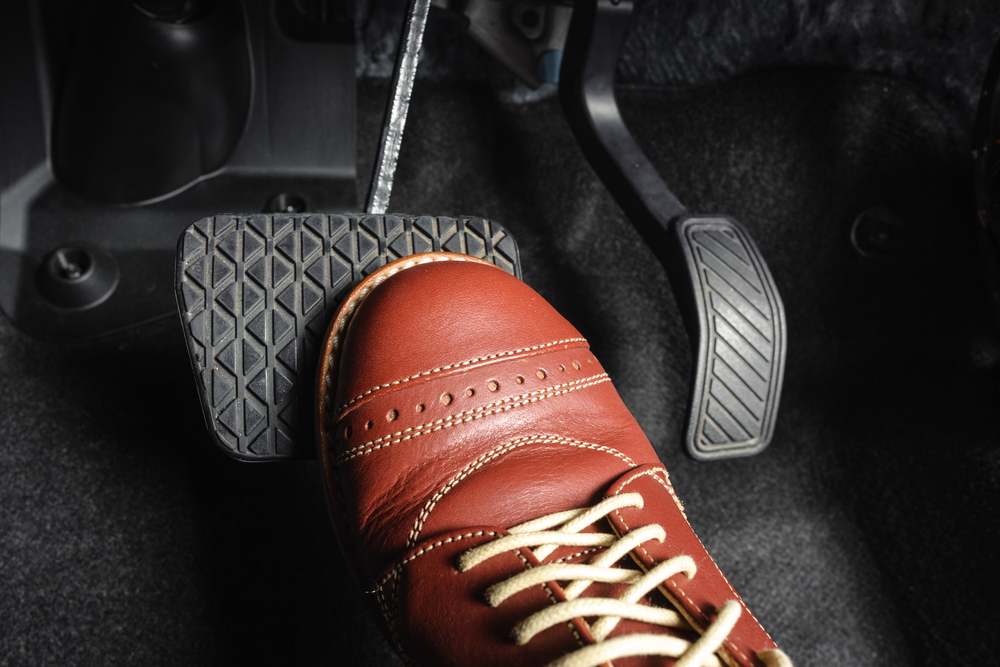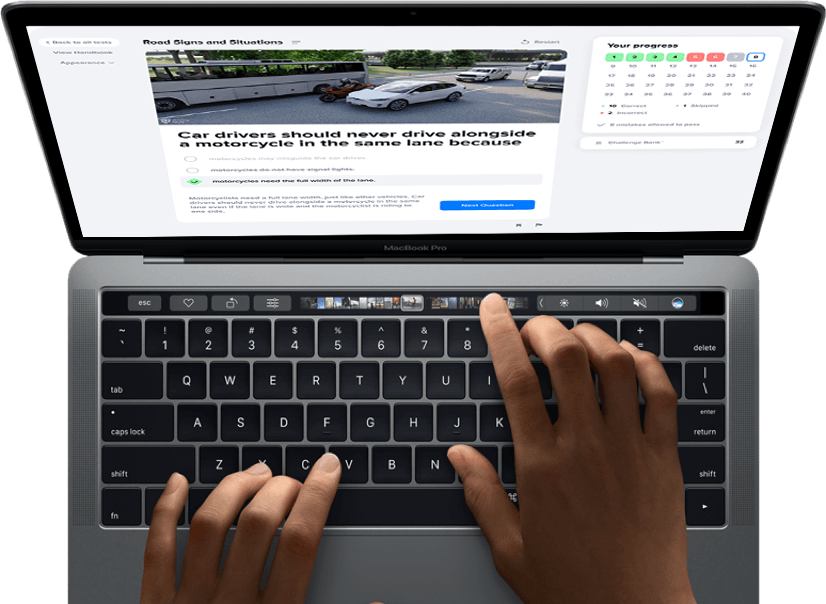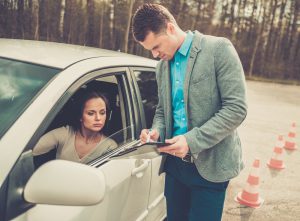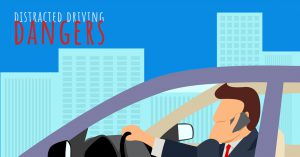Sometimes mechanical failures happen when we are driving and one of those things could be your brakes failing. Failing brakes is a situation that nobody wants to be in and can cause an accident and injuries to occur.
To ensure that you know how to safely come to a stop if your brakes fail, we put together this guide. Follow these steps to handle the situation in the safest way possible!
You’re reading one of our “Beginner Driver’s Guide” articles. Need to practice for your upcoming exam? Take our free sample driving test -- no registration required! ✨
Brake Failure Symptoms
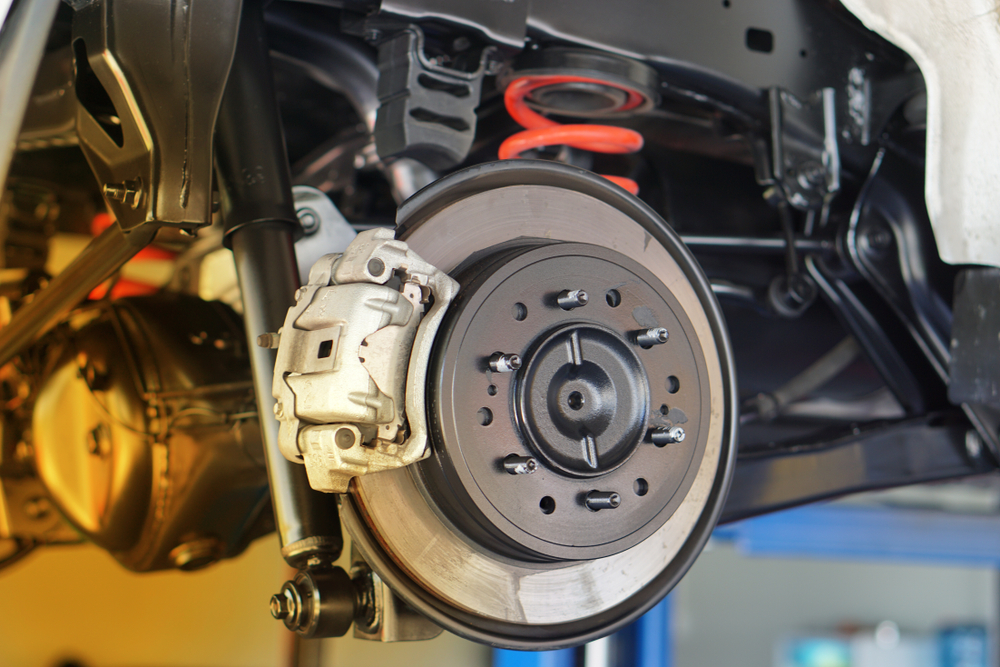
Brake failures oftentime happen when brake fluid is drastically lost or the brake pads are overworn. This can be caused by improper car maintenance or undetected damage. There are a few warning signs you should pay attention to and have looked at, which include:
Bad Brake Noises
If you hear squealing, grinding, or scraping while pushing on your brakes, it may be time to take your car in to the shop. These odd noises are attributed to worn brake pads or rotors that need to be swapped out.
Irregular Movements
If your car is shaking when you brake or pulls in a single direction (left or right) when braking, you may have warped rotors or one of your brakes could be working improperly.
Increased Stopping Distance
If you notice it takes longer for you to brake, this could mean that your brakes are wearing out or brake fluid is leaking.
Warning Lights
A warning light on your dash indicating a brake warning should be checked on as soon as possible.
- 1
Stay Calm
Remaining calm is an important step to remember if your brakes fail. Panicking may result in a driving maneuver that puts you or others in danger so remember to keep your head clear.
Start by taking your foot off the gas pedal and keep your hands firmly on the steering wheel.
- 2
Downshift the Vehicle
If you test the brakes again and notice that they are not responsive and your car won’t brake, start downshifting the car. Whether you have a car with automatic transmission or manual transmission, you should downshift into a lower gear to allow the engine to brake for you.
Don’t downshift too quickly as this can cause your car to skid as it engine brakes. Also, don’t put your car in neutral or shut off the vehicle, since you will want both engine braking and power steering working in your favor.
- 3
Pump the Brakes
If you don’t have anti-locking brakes (ABS), try pumping your brakes quickly to build up the pressure of brake fluid in your brake lines. If the brakes still aren’t working after a few pumps, you will want to use your parking brake.
- 4
Gradually Apply the Emergency Brake
If none of the above methods help, start applying the emergency brake, which may be a pedal or a hand brake. Don’t abruptly pull the brake as this may cause your car to move out of control and roll or spin.
- 5
Use Your Surroundings
In some situations, you may be going fast and have to scrap your car to slow down. This should be used as a last option to attempt to slow down.
To avoid an out of control car crash, approach the highway guard rail or divider at a shallow angle and gently rub your car against it. The friction of your car rubbing on the median will slow your car down. Additionally, if there is an open field with grass or dirt, that can be used to slow down. Warn other drivers by honking and flashing your lights.
- 6
Pull Over
After you have come close to a complete stop, flick on your hazard lights and move toward the right side of the road if possible. Be aware of oncoming traffic and get out of your car when it is safe.
- 7
Call for a Tow Truck
Given that your brakes just failed, you won’t want to drive your car until those problems are fixed. Call for a tow truck and have your vehicle taken to your repair shop for inspection.
It is always best to stay on top of your car maintenance to avoid any brake problems or repairs. Make sure you brake system is functioning properly with regularly scheduled visits to your auto repair shop so you won’t have to experience failing brakes anytime soon.
